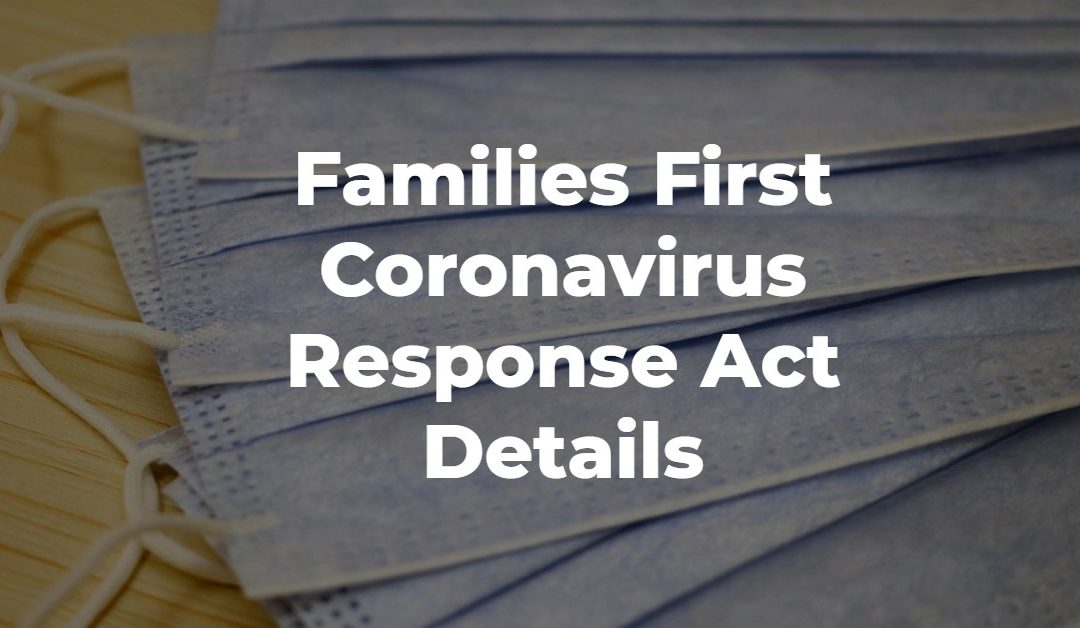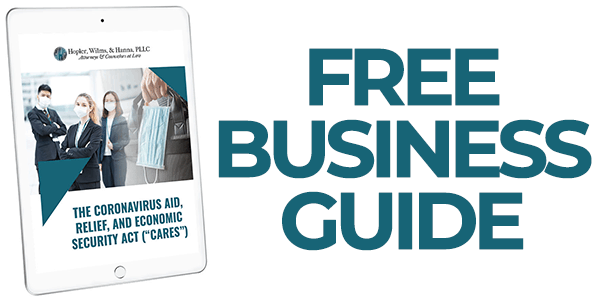As reports about the Coronavirus continue to come out, employers and employees continue to monitor the situation and wonder how their lives and business will be affected.
On March 18, 2020, the President signed the Families First Coronavirus Act. It addresses administering paid sick leave to those employees who have been impacted by COVID-19 and expanding the Family Medical Leave Act (FMLA). This Act, which has an official start date of April 2, 2020, will remain in effect until December 31, 2020, and will have a direct effect on employers in several different manners.
Temporary Expansion of FMLA Leave
The Act creates a significant expansion of FMLA. The prior rules regarding leave only impacted employers with fifty or more employees. The Act now mandates that small businesses with less than five hundred employees offer twelve weeks of job-protected emergency leave.
Employees now qualify for the emergency leave if they are unable to work from home or work at all, and/or if the employee cannot come to work because they must care for a minor child who is out of school due to school closings. Based on the temporary changes, employees who have worked at least thirty days will qualify for leave compared to one year previously.
Companies will still be required to provide job protection when the employee comes back to work; however, the Act provides some leeway to employers with twenty-five employees or less.
FMLA Paid Leave
Another drastic change to the FMLA requirements is a payment structure. Under the Act, the first ten days of this expanded definition of leave will be unpaid.
Employees may use paid time off, including sick and vacation time, to subsidize this period; however, what will be critical to small businesses is that after the first ten days, full-time employees must receive pay at the rate of two-thirds the employee’s regular rate of pay from their employer. This amount may not exceed $200 per day, and the employer is not required to pay more than $10,000 total to an employee for this period.
Paid Sick Leave
Another substantial impact to small businesses is the paid sick leave requirement. Businesses with five hundred or fewer employees will be required to issue eighty hours of paid sick leave for the situations in which the employee is subject to a federal, state, or local quarantine or in isolation due to COVID-19; if the employee was advised by a healthcare professional to self-quarantine due to virus concerns; or if the employee experiences COVID-19 symptoms and seeks a medical diagnosis.
Despite a lack of testing, employers will be required to take a liberal stance on the definition of symptoms, as long as the employee seeks a diagnosis. The amount paid out by employers will be capped at $511 per day or $5,110 total.
If the employee must take time off because he or she must care for an individual who is subject to an isolation order; or self-quarantine; or if the employee must care for a minor child because school is closed; or is experiencing a hardship defined by the Department of Health and Human Services, the Treasury, or the Department of Labor, he or she will qualify for two-thirds of their rate of pay.
The amount paid out by employers will be capped at $200 per day or $2,000 total.
It is important to know that this paid leave will not carry over after December 31, 2020. Part-time employees may also receive paid leave per the aforementioned events; however, pay will be based on the average number of hours worked within the last six months or, if the employee worked less than six months, an average number of hours that the employee would normally work during a two week period.
Finally, at the express request of the employee, the employer must pay eighty hours to cover the first ten days of unpaid leave under FMLA.
If an employer is required to pay out sick leave or emergency FMLA leave, they may qualify for a tax credit. The tax credit will be reimbursed if the cost for the employee coverage exceeds the taxes owed by the employer. Tax credits are taken against the employer portion of Social Security. Per the Act, an employer will be entitled to a 100% refundable tax credit for the qualified sick leave paid out for each calendar quarter.
These amounts are capped at $511 per day (less if the employee is caring for an individual or child) for up to ten days per employee during the quarter. For qualified leave wages, the employer is entitled to a 100% tax credit for each calendar quarter. This amount is capped at $200 per day for each employee up to $10,000 per quarter.
Exemptions to FMLA
The Act has provided the Department of Labor with the option to exclude healthcare providers and exempt small businesses with fewer than fifty employees if the requirement would jeopardize the viability of their business.
These exceptions will still require further guidance from the Department of Labor before the Act goes into effect on April 2, 2020. The Act is still under review with the Department of Labor, and additional guidance is expected before April 2, 2020. In addition, Congress is currently debating further stimulus packages which may positively impact small businesses.
Small businesses are an integral part of our country as are the employees who work for them. As the COVID-19 situation develops, Hopler, Wilms, & Hanna is staying on top of the impact it can have on both businesses and employees. Keep checking our blog to find out the latest on the impact this ever-developing situation could have on you, your business, and your employees.
Do you have questions about the Families First Coronavirus Response Act in regards to your business? contact us at 919-244-2019 or visit our contact page.



